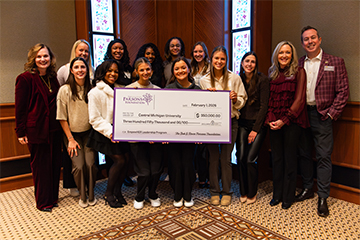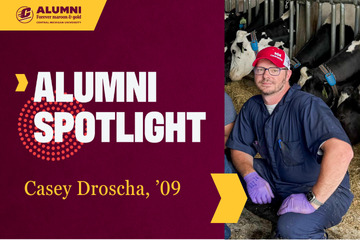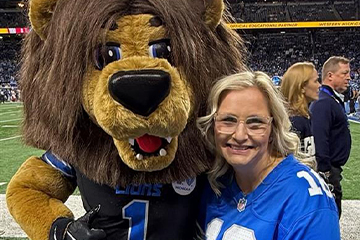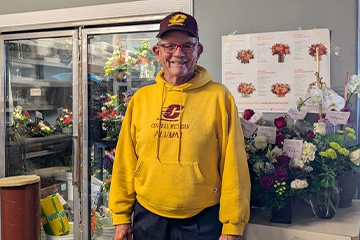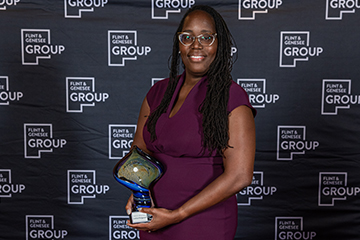A century of student leadership at CMU
Student government alumni share the lessons they’ve learned
Katie Prebelich says she's learned more about leadership since April 9, 2020, than at any time before.
That's the day she was inaugurated as Student Government Association president at Central Michigan University. It's also just a few weeks after CMU shifted the semester to online-only courses in response to the COVID-19 pandemic.
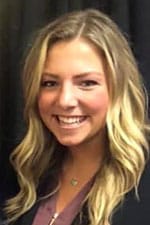
And it coincides with the centennial of SGA's founding in December 1920.
"It's so fitting that the 100th anniversary would fall during such an unusual year. SGA has always been able to stand up and represent students in challenging situations," Prebelich said, citing the AIDS crisis of the 1980s, various protest movements, and the creation of the Student Activity Center, the Counseling Center and more.
Prebelich is a senior from Troy, Michigan, studying integrative public relations with a minor in leadership. This is her second year in student government. She plans to attend law school after graduating in May 2021.
SGA partnered with the CMU Alumni Association for a Nov. 11 virtual centennial celebration with past leaders to talk about accomplishments, issues and plans. Prebelich said members past and present have much in common.
"This position challenges you to grow into the leader you want to be," she said.
Six alumni who served in SGA during their time at CMU shared how the experience has shaped their careers and lives:
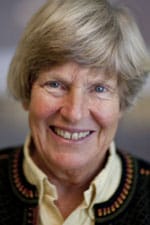
P. Dee Boersma
1969 graduate, biology major Director, Center for Ecosystem Sentinels; Wadsworth Endowed Chair in Conservation in Department of Biology, University of Washington; co-chair, International Union for Conservation of Nature, Penguin Specialist Group
Why did you join SGA and what was your role? How did these experiences prepare you for the real world? I was part of the SGA initiative that eliminated the residence hall curfew for women. Central gave me many of the skills I needed for leadership roles later in my life. The opportunities for personal growth I had as a result of my leadership roles, both within SGA and as president of the Associated Women Students at CMU, were great. As a member of CMU's debate team, I gained skills that prepared me for teaching and were instrumental in building my argumentative skills. It helped me look at issues from both sides, evaluate my own point of view and provide public speaking skills that I continue to use today.
What is something that you have accomplished in your career after graduating that you are proud of? I am proud of my work on women's rights and on long-term studies on penguins. Right out of college, I got to serve on President Richard Nixon's Task Force on Women's Rights and Responsibilities, which published "A Matter of Simple Justice" in April 1970. Many of our recommendations were implemented, but we still need to pass the Equal Rights Amendment, and that may happen in the next few years. I wanted to change my world, and I've gotten the chance to be part of that positive change.
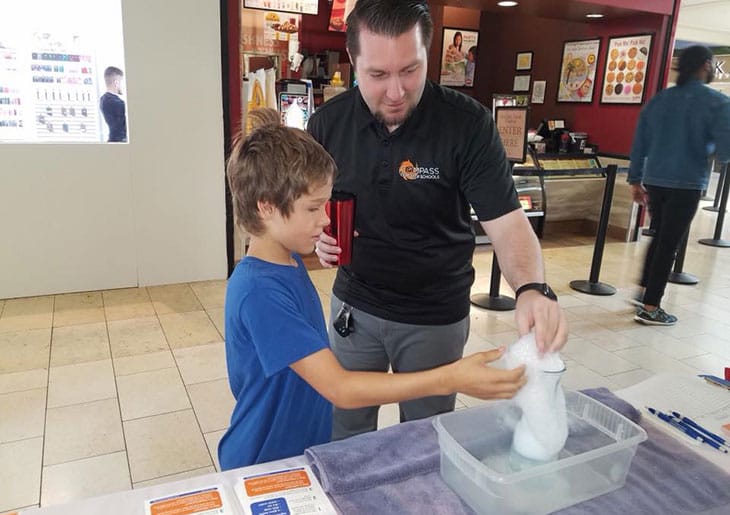

J.J. Lewis
2006 graduate, history major
Pursuing a doctorate in organizational change and leadership from the University of Southern California, 2021 anticipated graduation
What leadership skills did you learn in SGA? One of my biggest takeaways was learning how to listen to diverse perspectives and opinions, and making decisions based on that input. I learned how to be open and vulnerable, how to connect with people and how to organize events. I lobbied on behalf of fellow students in Washington, D.C., and refined my advocacy and communication skill sets. There is so much you can take away from being involved in SGA and student activities in general.
How do you lead people in your position? I believe in being an inclusive, servant leader. I make myself available not only to my staff but also to our scholars and our families. I host monthly town halls where I provide staff updates and answer questions. I'm open and transparent. If I know something, I'll share it. If I don't know something, I'll find it. If I make a mistake, I own it and apologize.
I've created our scholar leader council, parent advisory council and staff advisory committee as a way for folks to not only share feedback but ideate on peer feedback and create recommendations to improve our Compass experience. I value all voices and want to make sure they're heard. Two hundred heads are better than one. The biggest thing I say is, "I might be at the helm, but it's not my school, it's our school."
![cut-Steve-Poe-Field-picture[1]](/images/default-source/presidents-division/university-communications/news/2021/2021-2/cut-steve-poe-field-picture-1-bd3d0a68-2719-426f-9acb-efb77af28855.jpg?Status=Master&sfvrsn=fc25068d_3)
![mug-Steve-Poe-Headshot[1]](/images/default-source/presidents-division/university-communications/news/2021/2021-2/mug-steve-poe-headshot-1-62e19705-2894-41ab-afdb-c4bc1520ea1c.jpg?Status=Master&sfvrsn=da64d40_3)
Maj. Steve Poe
2007 graduate, education major
Why did you join SGA? I wanted to see things done differently and thought to myself, "If you want to see change, you need to be a part of it." I joined with another friend of mine, another change agent.
How did leadership in SGA prepare you for life? Leadership is managing personalities, getting along with people and making relationships. My engagement with other students, professors, the university president, the dean of students and Board of Trustees members all mattered.
If you do not have solid relationships, your success will only run so far. Those are my biggest takeaways. My secret to success as a leader is empowering people and empowering the other leaders that I work with to act as leaders and make decisions.
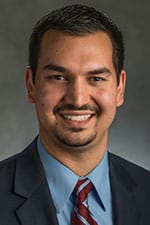
Mike Zeig
2008 Honors Program graduate, political science major, Centralis scholar Chief of staff, Michigan State University Office of the President, East Lansing
Why did you choose CMU above other universities? Looking at the opportunities that the Political Science Department and the Honors Program offered in terms of internship and Study Abroad, I thought those would be beneficial learning experiences. Going through those experiences at CMU helped launched me to a successful career, because you make such valuable connections and get such great hands-on experience.
How did leadership in SGA prepare you for life? SGA has a very important voice, but it is still the student voice, so you have to collaborate with university administrators. I spent a lot of time trying to arrange meetings, advocate and work with different people to advance those student initiatives. That experience has been beneficial in my career, because it demonstrates the value of those relationships and the persistence needed to accomplish tasks that might take a while.

Brittany Mouzourakis
2011 Honors Program graduate, international business with Japanese major, Leadership Advancement Scholar
Litigation Counsel at General Motors, Detroit
Why did you choose CMU? I chose Central because of CMU's dedication to leadership development. I knew I wanted to go to a university that would allow me to continue to develop my leadership skills, and CMU's Leadership Institute was particularly appealing to me. I also chose CMU because of its well-regarded Honors Program.
What did your experiences in SGA and at CMU teach you? How do you use leadership skills in your life today? My experience in SGA taught me how to identify problems, brainstorm solutions and determine how to implement the solution — a skill set that remains vitally important to my career as a lawyer. During my year as SGA president, I noticed that there was a need on campus for legal services, so I did something about it by envisioning a pro bono legal clinic and creating the framework to make it a reality. I'm proud to say that even a decade later, the SGA Legal Clinic is still in operation. Overall, my experience in SGA taught me that with intention and dedication, I could influence positive change in the world around me.
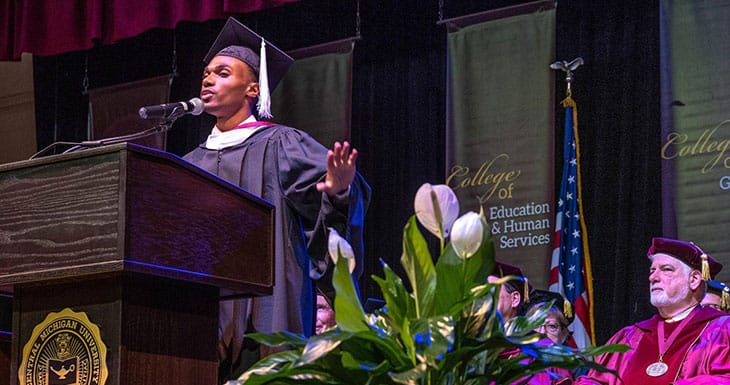
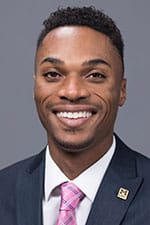
Chuck Mahone
2016 bachelor's degree, political science and communication majors
2018 master's degree in higher education administration
Will practice at Sidley Austin LLP in Chicago after law school graduation
Why did you join SGA? I was class president at my high school, and I wanted to continue advocating for my peers. I went to Leadership Safari and saw the SGA president speak, and I said, "I am going to do that." I joined SGA my freshman year and became a senator and a committee chair. I was named senate leader my junior year. This was my first time having positional authority over those who had more experience than me. I knew I needed to be prepared to execute well. It was the first time I felt like I was doing work and putting in the time for a constituency. I loved that experience, and I loved that pressure.
What skills from SGA have carried through into your life and career? Being president taught me preparation, execution and accountability. I've taken these with me into my master's degree program, professional career and law school. If you're not preparing, you are doing a disservice to the people you serve and to yourself. Who you're accountable to should be what is driving your actions.
Written by University Communications interns Angelica Elizalde, Caroline Kramer and Eva Steepe.
